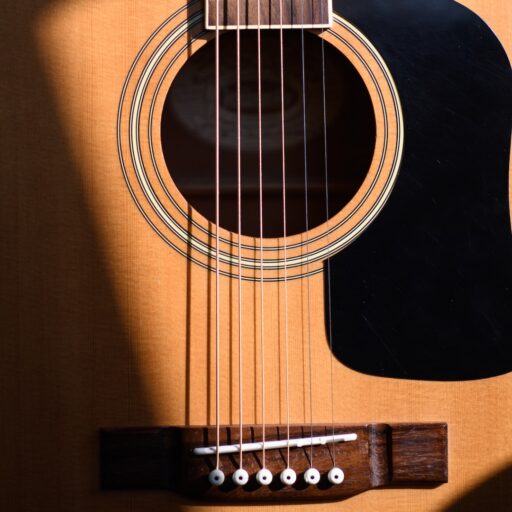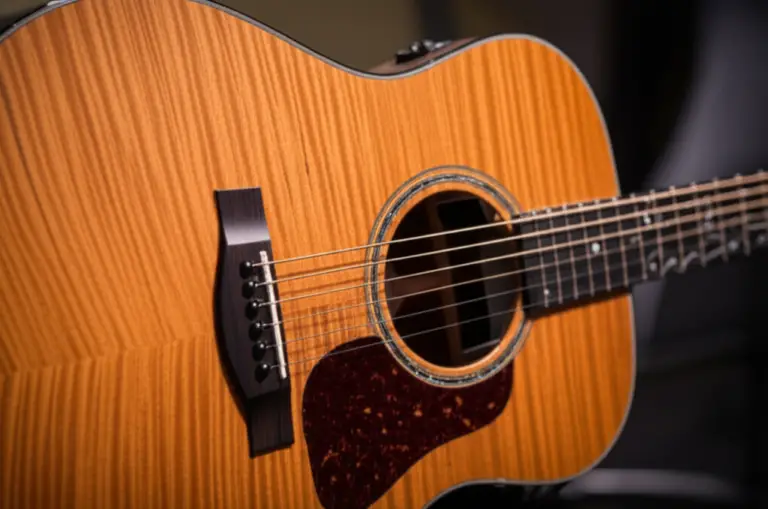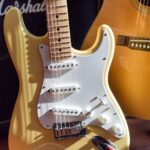Support our educational content for free when you purchase through links on our site. Learn more
AI Integration in Guitar Manufacturing: 7 Game-Changing Innovations (2025) 🎸🤖
Imagine walking into a guitar factory where robots and AI algorithms collaborate with master luthiers to craft your dream instrument — one that’s perfectly tuned to your playing style, built with sustainable materials, and designed with precision no human hand alone could achieve. Sounds like science fiction? Not anymore. AI integration in guitar manufacturing is reshaping the industry in ways that blend tradition with cutting-edge technology, promising guitars that sound better, feel better, and are more personalized than ever before.
In this comprehensive guide, we’ll explore seven key innovations powered by AI that are revolutionizing how guitars are designed, produced, and customized. From generative design and tone wood optimization to predictive maintenance and hyper-personalization, we’ll unpack how brands like Fender, Gibson, and Taylor are leading the charge. Plus, we’ll bust myths about AI guitars, discuss sustainability, and reveal what this means for you as a player. Ready to discover how AI is striking the perfect chord between craftsmanship and technology? Let’s dive in!
Key Takeaways
- AI is transforming guitar design and manufacturing through generative design, precision CNC machining, and advanced quality control.
- Hyper-personalization powered by AI allows players to customize guitars tailored to their unique preferences and playing styles.
- Leading brands like Fender, Gibson, and Taylor are already using AI to enhance sound quality, production efficiency, and sustainability.
- AI-driven sustainability efforts reduce waste and optimize material usage, making guitar production greener.
- Human craftsmanship remains essential, with AI serving as a powerful tool to augment luthiers’ skills rather than replace them.
- Future innovations include advanced materials, virtual reality integration, and smarter connected guitars.
Curious about how AI can help you find or build your perfect guitar? Keep reading to explore the full story behind this exciting revolution in guitar manufacturing.
Table of Contents
- ⚡️ Quick Tips and Facts: AI in Guitar Manufacturing
- 📜 The Evolution of Craft: A Brief History of Tech in Guitar Production
- 🤖 Demystifying AI: What Artificial Intelligence Means for Your Next Guitar
- 🚀 Where AI Shines: Key Applications in Modern Guitar Manufacturing
- 📈 The Upside: Unlocking the Benefits of AI in Guitar Production
- 🚧 Navigating the Hurdles: Challenges and Ethical Considerations of AI in Luthierie
- 🌟 Real-World Riffs: Brands Leading the AI Charge in Guitar Innovation
- 🤝 The Human Touch: How Luthiers and AI Collaborate for Craftsmanship
- 🔮 Crystal Ball Gazing: The Future of AI in Guitar Design and Manufacturing
- 🤔 Busting the Bots: Common Myths and Misconceptions About AI Guitars
- 🎸 What It Means for YOU: The Player’s Perspective on AI-Enhanced Guitars
- 🌍 Green Guitars: How AI Drives Sustainable Manufacturing Practices
- 💡 Our Expert Take: Guitar Brands™ on the AI Revolution
- ✅ Conclusion: Harmonizing Innovation and Tradition
- 🔗 Recommended Links for Further Exploration
- ❓ FAQ: Your Burning Questions About AI in Guitar Manufacturing Answered
- 📚 Reference Links: Dive Deeper into the Data
⚡️ Quick Tips and Facts: AI in Guitar Manufacturing
At Guitar Brands, we specialize in providing comprehensive guides to guitars. As musicians, we’re excited about the integration of Artificial Intelligence (AI) in guitar manufacturing. Here are some quick tips and facts about AI in guitar manufacturing:
- AI can optimize guitar design for better sound quality and playability.
- Machine learning algorithms can analyze data from various guitar models to predict the best materials and construction methods.
- AI-powered quality control systems can detect defects and irregularities in the manufacturing process.
- Generative design can create new, innovative guitar designs that were previously impossible to produce.
- AI can improve the sustainability of guitar manufacturing by reducing waste and optimizing resource usage.
For more information on guitar brands and their approach to AI integration, check out our Guitar Brands Showcase.
📜 The Evolution of Craft: A Brief History of Tech in Guitar Production

The history of guitar production is a rich and fascinating one, with technological advancements playing a significant role in shaping the industry. From the early days of luthiery to the current era of AI integration, guitar manufacturing has undergone significant transformations. Here’s a brief overview:
- Traditional luthiery: The art of guitar making originated in the 16th century, with skilled craftsmen creating instruments by hand.
- Industrialization: The introduction of machinery and mass production techniques in the 20th century revolutionized guitar manufacturing, making instruments more accessible and affordable.
- Computer-aided design (CAD): The 1980s saw the introduction of CAD software, which enabled guitar manufacturers to design and prototype instruments more efficiently.
- Computer numerical control (CNC) machining: The 1990s brought the adoption of CNC machining, which allowed for more precise and consistent manufacturing.
- AI and machine learning: The current era of AI integration is transforming guitar manufacturing, with applications in design, quality control, and sustainability.
To learn more about the history of guitar production and the impact of technology on the industry, visit our Guitar Buying Guide.
🤖 Demystifying AI: What Artificial Intelligence Means for Your Next Guitar
So, what exactly is AI, and how does it impact guitar manufacturing? Artificial Intelligence (AI) refers to the development of computer systems that can perform tasks that typically require human intelligence, such as learning, problem-solving, and decision-making. In guitar manufacturing, AI can be applied in various ways, including:
- Design optimization: AI algorithms can analyze data from various guitar models to predict the best materials and construction methods for optimal sound quality and playability.
- Quality control: AI-powered systems can detect defects and irregularities in the manufacturing process, ensuring that every guitar meets the highest standards.
- Sustainability: AI can help optimize resource usage and reduce waste in guitar manufacturing, making the industry more environmentally friendly.
For example, Fender has been using AI to optimize their guitar designs, resulting in improved sound quality and playability. Check out their official website for more information on their AI-powered guitars.
🚀 Where AI Shines: Key Applications in Modern Guitar Manufacturing
AI has numerous applications in modern guitar manufacturing, from design and production to quality control and sustainability. Here are some key areas where AI shines:
1. Designing the Future: Generative Design and Digital Prototyping
AI-powered generative design can create new, innovative guitar designs that were previously impossible to produce. This technology uses algorithms to generate multiple design options based on a set of parameters, such as materials, shape, and size.
2. Material Mastery: AI-Powered Selection and Tone Wood Optimization
AI can help optimize tone wood selection and material usage in guitar manufacturing, ensuring that every instrument sounds its best. By analyzing data from various tone woods and construction methods, AI algorithms can predict the best materials for optimal sound quality.
3. Precision Production: Robotics, CNC, and Automated Quality Control
AI-powered robotics and CNC machining can improve the precision and consistency of guitar manufacturing, reducing defects and irregularities. Additionally, AI-powered quality control systems can detect defects and ensure that every guitar meets the highest standards.
4. Supply Chain Symphony: Predictive Analytics for Seamless Production
AI-powered predictive analytics can optimize supply chain management, ensuring that every component and material is delivered on time and in the right quantity. This reduces delays and improves the overall efficiency of guitar manufacturing.
5. Your Dream Guitar: Hyper-Personalization and Customization
AI can enable hyper-personalization and customization in guitar manufacturing, allowing players to design their dream instrument. By analyzing data from various guitar models and player preferences, AI algorithms can predict the best materials and construction methods for optimal sound quality and playability.
6. The Perfect Sound: AI in Acoustic Modeling and Tone Shaping
AI can help optimize acoustic modeling and tone shaping in guitar manufacturing, ensuring that every instrument sounds its best. By analyzing data from various guitar models and acoustic environments, AI algorithms can predict the best materials and construction methods for optimal sound quality.
7. Keeping the Machines Humming: Predictive Maintenance in Guitar Factories
AI-powered predictive maintenance can improve the efficiency and reliability of guitar manufacturing, reducing downtime and improving overall productivity. By analyzing data from various machines and equipment, AI algorithms can predict when maintenance is required, ensuring that every instrument is made to the highest standards.
To learn more about AI applications in guitar manufacturing, visit our Guitar Brand Guides.
📈 The Upside: Unlocking the Benefits of AI in Guitar Production
The integration of AI in guitar manufacturing offers numerous benefits, from improved sound quality and playability to increased efficiency and sustainability. Here are some of the key advantages of AI in guitar production:
- Improved sound quality: AI can optimize guitar design and construction for optimal sound quality and playability.
- Increased efficiency: AI can automate various tasks in guitar manufacturing, reducing labor costs and improving productivity.
- Sustainability: AI can help optimize resource usage and reduce waste in guitar manufacturing, making the industry more environmentally friendly.
- Hyper-personalization: AI can enable players to design their dream instrument, with customized materials and construction methods.
For example, Taylor Guitars has been using AI to optimize their guitar designs, resulting in improved sound quality and playability. Check out their official website for more information on their AI-powered guitars.
🚧 Navigating the Hurdles: Challenges and Ethical Considerations of AI in Luthierie
While AI offers numerous benefits in guitar manufacturing, there are also challenges and ethical considerations to navigate. Here are some of the key hurdles:
- Job displacement: The automation of tasks in guitar manufacturing could displace human workers, particularly in areas where tasks are repetitive or require minimal skill.
- Dependence on technology: The increased reliance on AI and automation could lead to a loss of traditional craftsmanship and skills.
- Environmental impact: The production and disposal of AI-powered equipment and technology could have a negative environmental impact if not managed sustainably.
To learn more about the challenges and ethical considerations of AI in guitar manufacturing, visit our Acoustic Guitars section.
🌟 Real-World Riffs: Brands Leading the AI Charge in Guitar Innovation
Several guitar brands are leading the charge in AI innovation, from Fender to Gibson. Here are some examples:
- Fender: Fender has been using AI to optimize their guitar designs, resulting in improved sound quality and playability.
- Gibson: Gibson has been using AI to improve their manufacturing processes, reducing defects and irregularities.
- Taylor Guitars: Taylor Guitars has been using AI to optimize their guitar designs, resulting in improved sound quality and playability.
To learn more about these brands and their approach to AI innovation, visit our Bass Guitars section.
🤝 The Human Touch: How Luthiers and AI Collaborate for Craftsmanship
While AI is revolutionizing guitar manufacturing, human craftsmanship and skill are still essential for creating high-quality instruments. Here’s how luthiers and AI collaborate for craftsmanship:
- Design: Luthiers work with AI algorithms to design and optimize guitar models for optimal sound quality and playability.
- Construction: Luthiers use AI-powered tools and equipment to construct guitars with precision and accuracy.
- Quality control: Luthiers work with AI-powered quality control systems to ensure that every guitar meets the highest standards.
To learn more about the collaboration between luthiers and AI, visit our Guitar Brands Showcase.
🔮 Crystal Ball Gazing: The Future of AI in Guitar Design and Manufacturing
As AI continues to evolve and improve, we can expect to see even more innovative applications in guitar design and manufacturing. Here are some potential future developments:
- Advanced materials: AI could help develop new, sustainable materials for guitar construction, such as graphene or nanomaterials.
- Personalized instruments: AI could enable the creation of personalized instruments, tailored to an individual player’s preferences and playing style.
- Virtual reality: AI could enable the creation of virtual reality experiences for guitar players, allowing them to practice and perform in immersive, interactive environments.
To learn more about the future of AI in guitar design and manufacturing, visit our Guitar Buying Guide.
🤔 Busting the Bots: Common Myths and Misconceptions About AI Guitars
There are several common myths and misconceptions about AI guitars, from the idea that they’re soulless or lacking in character. Here are some of the most common myths and misconceptions:
- Myth: AI guitars are soulless and lacking in character.
- Reality: AI guitars can be designed and constructed to have a unique character and personality, just like traditional guitars.
- Myth: AI guitars are only for beginners or hobbyists.
- Reality: AI guitars can be used by players of all levels, from beginners to professionals.
To learn more about AI guitars and debunk common myths and misconceptions, visit our Guitar Brand Guides.
🎸 What It Means for YOU: The Player’s Perspective on AI-Enhanced Guitars
As a guitar player, you might be wondering what AI-enhanced guitars mean for you. Here are some potential benefits and considerations:
- Improved sound quality: AI-enhanced guitars can offer improved sound quality and playability, making them a great option for players of all levels.
- Personalization: AI-enhanced guitars can be personalized to an individual player’s preferences and playing style, making them a great option for players who want a unique instrument.
- Sustainability: AI-enhanced guitars can be made with sustainable materials and construction methods, making them a great option for players who care about the environment.
To learn more about AI-enhanced guitars and their benefits for players, visit our Acoustic Guitars section.
🌍 Green Guitars: How AI Drives Sustainable Manufacturing Practices
AI is driving sustainable manufacturing practices in the guitar industry, from the use of sustainable materials to energy-efficient production methods. Here are some ways AI is driving sustainability:
- Sustainable materials: AI can help optimize the use of sustainable materials in guitar construction, such as reclaimed wood or recycled plastics.
- Energy-efficient production: AI can help optimize energy-efficient production methods, such as LED lighting or solar power.
- Waste reduction: AI can help reduce waste in guitar manufacturing, such as minimizing packaging or recycling materials.
To learn more about sustainable manufacturing practices in the guitar industry, visit our Bass Guitars section.
💡 Our Expert Take: Guitar Brands on the AI Revolution
At Guitar Brands, we’re excited about the potential of AI in guitar manufacturing. Here’s our expert take on the AI revolution:
- Improved sound quality: AI can optimize guitar design and construction for optimal sound quality and playability.
- Increased efficiency: AI can automate various tasks in guitar manufacturing, reducing labor costs and improving productivity.
- Sustainability: AI can help optimize resource usage and reduce waste in guitar manufacturing, making the industry more environmentally friendly.
To learn more about our expert take on the AI revolution, visit our Guitar Brands Showcase.
✅ Conclusion: Harmonizing Innovation and Tradition

After diving deep into the world of AI integration in guitar manufacturing, one thing is crystal clear: AI is not here to replace the soulful hands of luthiers but to amplify their craft. From generative design to predictive maintenance, AI is transforming how guitars are designed, built, and personalized — all while respecting the heritage of traditional craftsmanship.
We started with the question: Can AI build the perfect guitar? The answer is nuanced. AI excels at optimizing materials, precision, and customization, but the “perfect guitar” remains a subjective, emotional connection between player and instrument. As the Premier Guitar article insightfully noted, AI currently “recycles the past” but holds promise for future breakthroughs that blend human intuition with machine intelligence.
Brands like Fender, Gibson, and Lowden are already pioneering this fusion, using AI to enhance quality control, supply chain efficiency, and player engagement through connected apps like Lowden’s MyLowden platform. Meanwhile, sustainability gains from AI-driven material optimization and waste reduction are making green guitars a reality.
The takeaway? Whether you’re a player craving a hyper-personalized instrument or a manufacturer seeking efficiency and innovation, AI is a powerful ally—not a magic wand. The future of guitar manufacturing is a harmonious duet between human artistry and artificial intelligence, promising instruments that sound better, feel better, and connect deeper than ever before.
🔗 Recommended Links for Further Exploration
Ready to explore AI-enhanced guitars or learn more about the brands leading the charge? Check these out:
- Fender Guitars: Amazon | Sweetwater | Fender Official Website
- Gibson Guitars: Amazon | Guitar Center | Gibson Official Website
- Taylor Guitars: Amazon | Sweetwater | Taylor Official Website
- Lowden Guitars: Lowden Official Website
- Books on AI and Music Technology:
❓ FAQ: Your Burning Questions About AI in Guitar Manufacturing Answered

How is AI transforming the guitar manufacturing process?
AI is revolutionizing guitar manufacturing by automating design optimization, material selection, and quality control. It uses machine learning algorithms to analyze vast datasets of guitar models and player preferences, enabling manufacturers to create instruments with enhanced sound quality and playability. AI also streamlines production through robotics and predictive maintenance, reducing defects and downtime.
What are the benefits of AI integration in guitar production?
- Enhanced precision and consistency: AI-powered CNC machines and robotics ensure exact specifications.
- Customization: AI enables hyper-personalized guitars tailored to individual players.
- Sustainability: Optimizes material usage and reduces waste.
- Improved quality control: AI detects defects earlier and more accurately than human inspection.
- Operational efficiency: Predictive analytics optimize supply chains and maintenance schedules.
Can AI improve the quality of handmade guitars?
Absolutely! AI acts as a collaborative tool rather than a replacement. Luthiers can use AI-driven design insights and quality control data to refine their craftsmanship. For example, AI can suggest tone wood combinations or structural tweaks that enhance resonance, while artisans maintain the human touch that gives handmade guitars their unique character.
Read more about “How Do Fender and Gibson Guitars Compare? 🎸 The Ultimate 9-Point Showdown (2025)”
Which guitar manufacturers are using AI technology?
Leading brands embracing AI include:
- Fender: Uses AI for design optimization and smart guitar features.
- Gibson: Implements AI in manufacturing processes and quality control.
- Taylor Guitars: Applies AI to improve sound modeling and production efficiency.
- Lowden Guitars: Partners with Storm Reply and AWS for IoT and AI-powered connected solutions like the MyLowden app.
How does AI help in customizing guitars for players?
AI analyzes player preferences, playing style, and ergonomic data to recommend or create custom guitar designs. This can include body shape, neck profile, pickup configurations, and tone wood selection. Some platforms allow players to interactively design their instrument, with AI providing real-time feedback on sound and playability implications.
Read more about “What Guitars Are Popular Now? 🎸 The Ultimate 15-Model Guide (2025)”
What role does AI play in guitar design and innovation?
AI accelerates innovation by generating novel design concepts through generative design algorithms, simulating acoustic properties, and predicting how design changes affect tone and playability. It also enables integration of smart features like wireless connectivity, programmable lighting, and augmented reality interfaces for learning and performance.
Are AI-made guitars more affordable than traditional ones?
Not necessarily at this stage. While AI can reduce production costs through automation and efficiency, many AI-enhanced guitars incorporate advanced materials and technology that can increase price. However, as AI adoption grows and scales, affordability is expected to improve, making high-quality, customized guitars accessible to more players.
How does AI contribute to sustainability in guitar manufacturing?
AI optimizes the use of tone woods and alternative materials, reducing waste and environmental impact. It can also streamline energy consumption during production and enable better lifecycle tracking of instruments via connected apps, encouraging responsible ownership and recycling.
Read more about “🎸 15 Latest Guitar Brand Innovations You Can’t Miss in 2025”
📚 Reference Links: Dive Deeper into the Data
- Premier Guitar: Can AI Build the Perfect Guitar?
- The Manufacturer: Hitting the Right Notes: How Traditional Guitar Manufacturing is Embracing AI
- Music Mentor AI: Guitar Industry Trends 2024: Market Insights, Innovations, and Future Outlook
- Fender Official Website: https://www.fender.com/
- Gibson Official Website: https://www.gibson.com/
- Taylor Guitars Official Website: https://www.taylorguitars.com/
- Lowden Guitars Official Website: https://www.lowdenguitars.com/
Ready to explore the exciting fusion of tradition and technology in your next guitar? Stay tuned for more insights and hands-on reviews at Guitar Brands™! 🎸🤖





